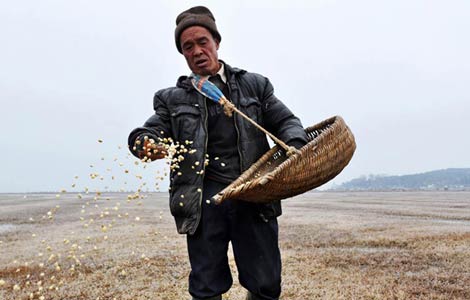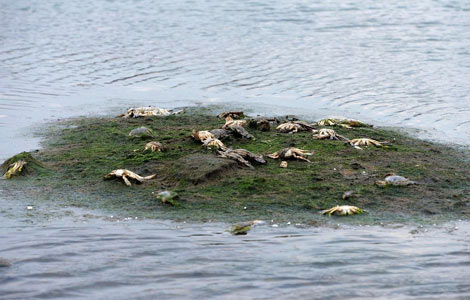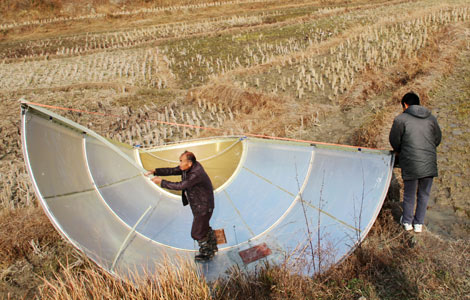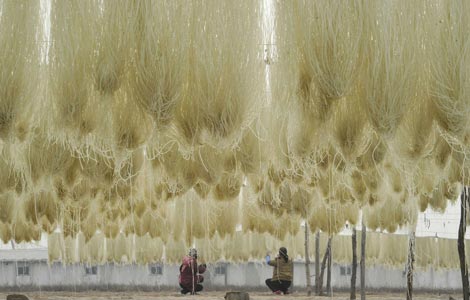

BEIJING - A draft amendment to the Administrative Procedure Law, submitted to China's top legislature for a first reading on Monday, should make it easier for citizens to take the government to court.
The Administrative Procedure Law, which went into effect in October 1990, is a major guarantee of citizens' rights to pursue the government through the courts, and this first revision to the law should alleviate "petition pressure."
While applauding a law that once played an important role in solving disputes, Xin Chunying, deputy director of the Legislative Affairs Commission of the National People's Congress (NPC) Standing Committee, said citizens had started to complain of "three difficulties" in making a case against governments: the filing of cases; the hearings of such cases; and enforcement of verdicts which favor citizens.
When citizens, legal persons or other organizations have disputes with governments or governmental staff, governments are unwilling to be defendants and courts are reluctant to accept and hear such cases, leading many citizens to try to solve their disputes through "letter and visit" (petitions), Xin said.
In many parts of the country, citizens have more confidence in petitions than in laws, she said as she explained the draft amendment to Monday's assembly of the bimonthly session of the NPC Standing Committee, which is being held from December 23 to 28.
To smooth the litigation process, the draft amendment stresses the courts' duty to ensure citizens can take authorities to court and underlines the need for courts to accept cases involving governments as defendants. Governments should neither intervene nor obstruct courts from filing and hearing such cases. Governmental defendants should respond to the suits according to law.
The amendment means more rights infringement cases should be accepted by the courts. People's courts will now accept suits in which administrators have infringed citizen's legal ownership or right to use over natural resources such as forests, pasture, mineral reserves, mountains and water.
Courts shall also be required to accept suits concerning infringement of rural land contracts and management rights, illegal fundraising, unlawful collection or requisition of property, or unfairly apportioned fees.
Citizens may bring cases against governments which fail to provide appropriate subsistence allowances or social insurance benefits.
To further protect citizens' right to sue, the draft allows individuals to sue the government via oral deposition. For those who have difficulty writing a statement of charges, the court will write the plaintiff's oral statement into records and notify the sued party.
To standardize the litigation procedure, the draft amendment adds articles to ensure that courts make a registration upon receiving an indictment and give a written statement with due date to the plaintiff.
If the indictment is valid, the court should file the case within seven days of receiving the complaint. If the indictment does not meet standards for filing, plaintiffs should be informed in writing of the reasons for refusal, also within seven days. Plaintiffs may appeal to higher courts if they are dissatisfied with the rationale.
If courts neither file a case nor give a clear statement in seven days, plaintiffs may appeal to a higher court. If the higher court rules the case should be filed, they may accept it directly or pass it on to a more appropriate court.
To reduce intervention in cases in which government itself is the defendant, the draft amendment allows higher courts to designate remote grassroots courts to accept trans-regional administrative cases.
The revision is of great significance for averting government intervention in administrative cases and realizing truly independent hearings of such cases, said Jiang Ming'an, professor at Peking University.
Considering that many administrative bodies simply refuse to implement or ignore verdicts which favor citizens, the amendment stipulates that administrative bodies' refusal to execute verdicts should be made public.
The leaders of bodies which refuse to abide by verdicts will be subject to detention, if their refusals exert a very bad influence on society.







